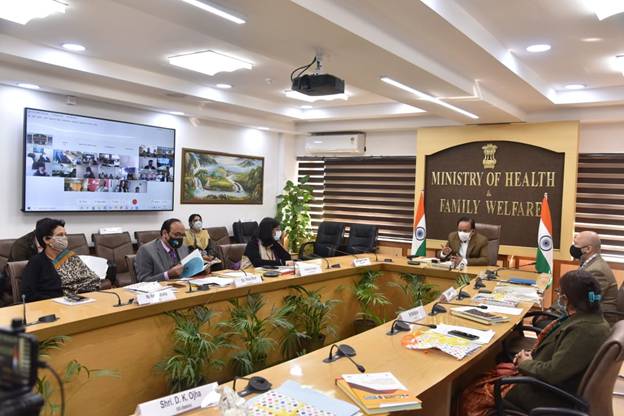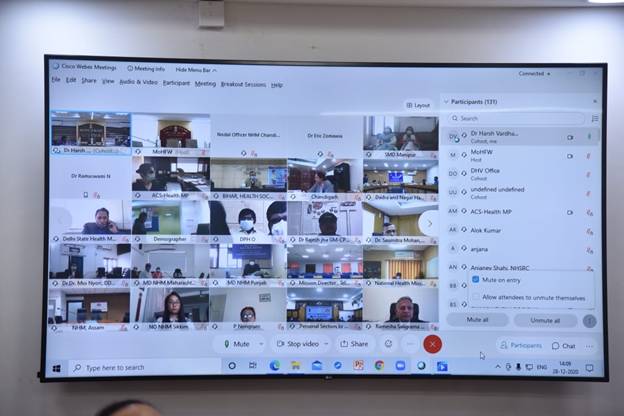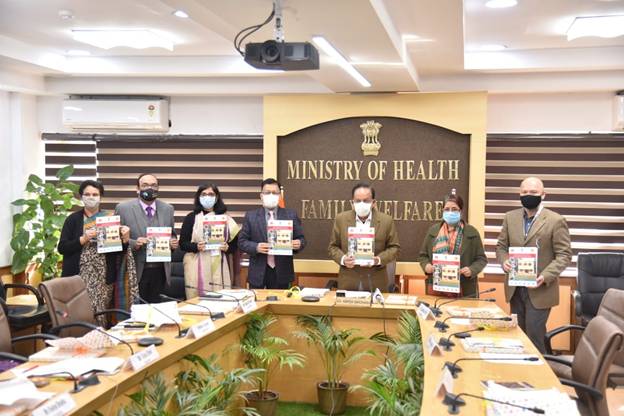Dr. Harsh Vardhan, Union Minister of Health and Family Welfare digitally inaugurated the 7th National Summit on Good, Replicable Practices through a video conference here today. Dr. Vardhan also launched New Health Management Information System (HMIS) along with the Operational Guidelines for TB services at AB-HWCs and the Operational Guidelines 2020 on Active Case Detection and Regular Surveillance for Leprosy.
Ministry of Health & Family Welfare holds the National Summit on Good, Replicable Practices and Innovations in Public Healthcare Systems in India. While the first one was held in 2013 at Srinagar to recognize, showcase and document various best practices and innovations in public healthcare system, the last was held at Gand hinagar, Gujarat.

Dr. Vardhan expressed his happiness on the event and congratulated everyone for organizing this event amid the pandemic situation. He said, “It is important to focus on innovative convergence strategies which will take India’s healthcare system to a new height. In the year 2020, 210 new initiatives were uploaded by the States and UTs in the National Healthcare Innovation Portal. The ultimate goal of these innovations is to improve the health status of the people on one hand and strengthen Public Health Systems in a sustainable manner on the other.” He also stressed on the need to involve and integrate the grassroots healthcare workers for brainstorming on the innovations in the healthcare ecosystem, and benefit from the collective wisdom which emanates from years of experience and expertise of working with people’s health delivery systems. Dr Harsh Vardhan shared his experiences of leading the Polio elimination drive when he was the Health Minister, Delhi, and reminisced about the power of people’s participation and community engagement in health programmes.

Emphasising the role of ideas and innovation in strengthening our healthcare system, Dr. Vardhan noted, “Innovation is a very important coefficient in the delivery of healthcare services. The work on COVID-19 has encouraged us to initiate new ways of dealing with programmes and create innovations. The pandemic has made us a self-reliant in the area of manufacturing of PPE kit, Ventilator, mask, vaccine etc. More than 1 million tele-consultations have been done on the eSanjeevani digital platform of the Health Ministry. This is a result of the innovative approach that has stem out of coordinated efforts.”
Reiterating the importance of digital and Information technology in delivery of Healthcare services, Dr Vardhan said, “Digital transformation has enabled us to develop a national digital health ecosystem that supports Universal Health Coverage in an efficient, accessible, inclusive, affordable, timely and safe manner. The new Health Management Information System (HMIS) provides a seamless online platform through the provision of a wide range of data, information and infrastructure services, duly leveraging open, interoperable, standards-based digital systems. The optimal information exchange has helped in achieving better health outcome, better decision support system, and facilitating improvement in the reforms of public health care at State and National level. Department of Health and Family Welfare has recently won a very prestigious Digital India award 2020 under Open Data Champion category for the eSanjeevani digital platform.”
Releasing the operational guidelines for TB services, the Union Minister noted, “The sustained efforts of the Government of India towards TB control have led to an unprecedented increase in TB notifications and improvements in diagnostics, adherence and treatment outcomes. The number of missing cases has reduced to 2.9 lakh cases in 2019, as against more than 10 lakh cases in 2017. Hon’ble Prime Minister Shri Narendra Modi ji has set a bold target of a TB-free India by 2025, five years ahead of the SDG targets of 2030. To achieve this goal, we need to work together for early diagnosis of TB, treat all TB patients at first interface along with ensuring suitable patient support systems, and break the chain of TB transmission in the community.”

At the end, Dr Vardhan concluded, “I am hopeful that the Ministry of Health & Family Welfare will continue with this good practice of holding national consultations and promote the culture of adopting new innovative approaches to improve health programmes in different parts of the country and share learnings and mutually enriching experiences in this context.”
Shri Rajesh Bhushan, Health Secretary, Ms. Vandana Gurnani, AS&MD (NHM), Ms. Ratna Anjan Jena, DG (Stats), Shri Vikas Sheel, AS (policy), MoHFW and other health officials from States/UTs joined the event. Dr Rodrico Ofrin, WR, WHO was also present at the event.





